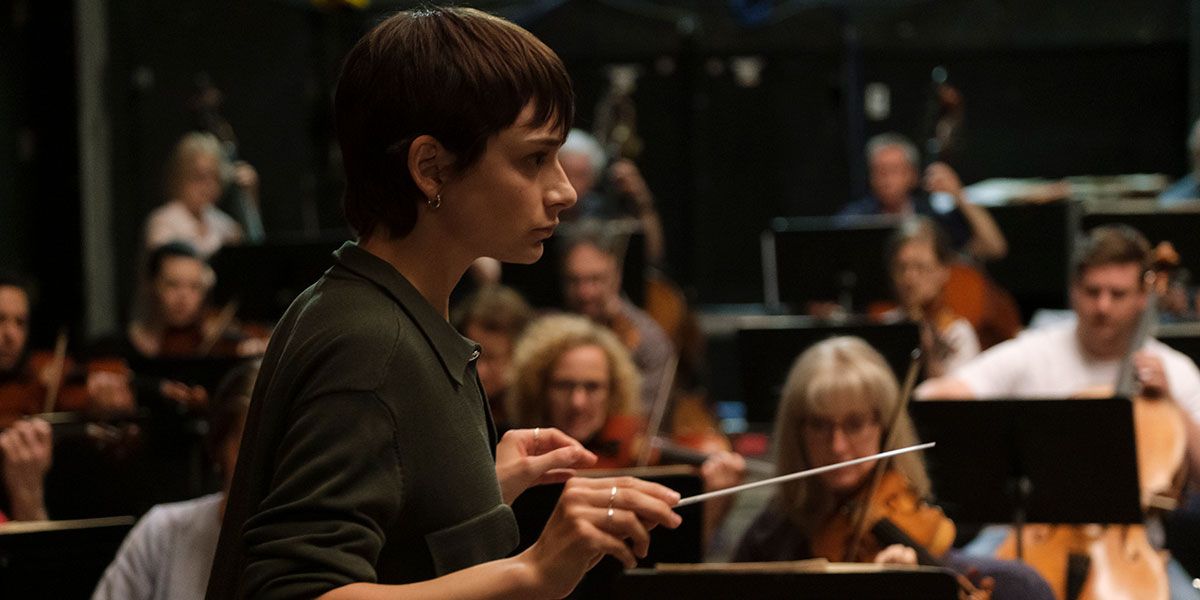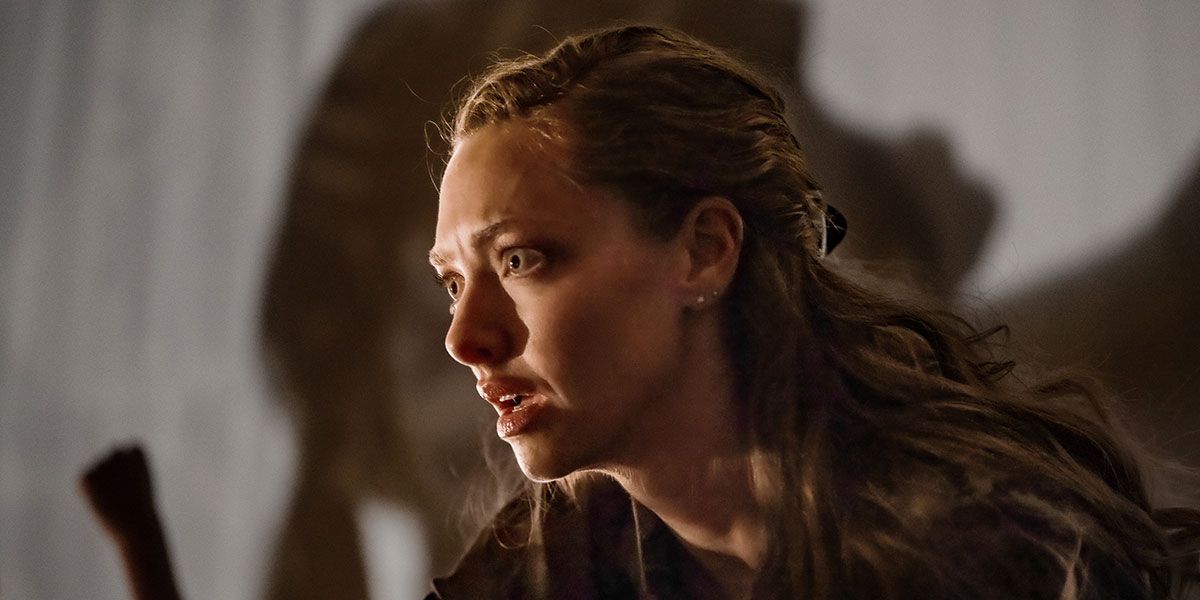TIFF 2023 reviews: Days of Happiness and Seven Veils
Two Canadian dramas explore women in the performing arts at career crossroads – but only one succeeds

There's an amusing scene early on in Chloé Robichaud's Days of Happiness (Les Jours heureux) (Rating: ✭✭✭✭) when, after a concert, a bumbling male journalist awkwardly ambushes conductor Emma (Sophie Desmarais) and asks her what it's like as a female in a male-dominated industry. She politely brushes him off and continues to her dressing room, where she laughs and rolls her eyes about the tired question with a bunch of friends.
Being a woman in a patriarchal institution isn't the problem. But being surrounded by abusive, toxic male jerks – including those in one's family – just might be.
That's one of the themes to emerge from two of this year's most-anticipated Canadian films, which both feature gifted women making their way in the performing arts.
Emma is a rapidly rising conductor who's in the running to take on a big job at Montreal's Orchestre Métropolitain. She's got an important "carte blanche" concert coming up in which she can choose what piece to play.
Hovering over her decision is her micromanaging father, Patrick (Sylvain Marcel), who's also her agent. Emma's having an affair with Naëlle (Nour Belkhiria), one of the orchestra's cellists, but the latter is keeping the relationship a secret from her young son and her husband, from whom she's separated.
As Emma's relationships begin to fray, so too do her concentration and focus. And suddenly the gifted musician who's done everything right has lost her tempo and momentum. Her mentor cautioned her that she's possibly too inside her head; now her head's swirling with fear, uncertainty and doubt.
Robichaud, her cinematographer Ariel Méthot and renowned conductor Yannick Nézet-Séguin (who acts as artistic consultant) establish a vivid, authentic world of image and sound. Each orchestral performance – Mozart, Schoenberg and Mahler – is directed differently, responding to the music itself and Emma's state of mind. (One misstep: I'm not sure why Robichaud makes it seem like the famous Adagietto is the final movement of Mahler's Fifth Symphony.)
Desmarais, who starred in Robichaud's Sarah Prefers to Run, gets to show off an enormous emotional and physical range – at the podium and away from it. Self-contained and confident at the beginning, headphones on while listening to the score she's working on, she's unaware of how a restaurant's musak is affecting her – Patrick has to point it out and do something about it.
Gradually, though, as she begins to confront the things that have been kept from her, she accesses reserves of pain, anger and, ultimately, strength. Her transformation – and her acceptance of other people's flaws and fears – is thrilling, and moving, to watch.
Days of Happiness screens again Sunday (September 10), at 8 pm, at the Scotiabank. See info here.

Atom Egoyan's Seven Veils (Rating: ✭✭) feels like an elaborate director's note to his acclaimed 1996 Canadian Opera Company production of Salome.
He revived his version of the Strauss opera earlier this year at the COC, and used that opportunity to create this film, which follows young theatre director Jeanine (Amanda Seyfried) as she restages a production of the opera made famous by her mentor, Charles, who has just passed away and bequeathed the director duties to her.
Things are a little unhinged in Jeanine's life. She's away from her daughter (Maya Misaljevic) and her separated husband (Mark O'Brien), who seems to be spending a lot of time at her mother Margot's (Lynne Griffin) home, perhaps because of her mom's live-in caregiver, Dimitra (Maia Jae Bastidas).
While working on the opera, meanwhile, she'd like to put her personal stamp on the piece, but is getting pushback from the opera company's staff (Tara Nicodemo and Lanette Ware) to keep things the way Charles had them.
Behind the scenes, prop master Clea (Rebecca Liddiard) has been assigned to make a video diary about John the Baptist's decapitated head, which plays an essential role in the opera's bloody climax.
Clea used to date Ambur (Ambur Braid), who's playing Salome opposite Michael Kupfer-Radecky's Johann/John the Baptist (Both Braid and Kupfer-Radecky were in Egoyan's Salome and play fictional roles here). But Clea's current girlfriend is the Salome understudy (Vinessa Antoine), while the John the Baptist understudy is being played by a man (Douglas Smith) Jeanine knew when she was interning with Charles.
To complicate matters, Clea would like her girlfriend to have a shot at the starring role. And she has to put up with the boorish, grabby Johann.
Confused? Who wouldn't be? Especially when you add in Jeanine's flashbacks to her childhood, which involve being videotaped while on a swing in a field, an image that showed up in Charles's production (and Egoyan's) during the opera's suggestive Dance of the Seven Veils scene.
The problem is, there are about two subplots too many, and as soon as you see Jeanine's first flashback you can predict where the film's headed. It also feels like a cheat not to give us a scene with Jeanine and Charles. Clea's story is obviously meant to amplify the themes in Jeanine's life, but we know so little about the women that it's hard to care what happens to either of them.
And I might be reading too much into it, but Seven Veils feels like a film awkwardly edited together with COVID restrictions. There are too many scenes of Jeanine on remote video calls, and while Egoyan plays with reflections of faces on screens, there's simply not enough to look at for such a complicated tale.
Seyfried's performance takes a while to get going – no surprise with such a messy script – but midway through she finds her footing. Viewers might have expected Robichaud's Days of Happiness – about a female conductor – to echo Todd Field's Tár. But there are a couple of scenes in this film that bring to mind that film's exploration of ethics and art.
A couple of scenes work, including one involving a male podcaster (Joey Klein, playing a character named Charlie... similar to Charles?) who gets much deeper into Jeanine's life than she expects. Seyfried, finally able to act opposite someone rather than stare at a screen or shout at a stage, is excellent here, her responses alert and on guard. And some of Charlie's questions seem legitimate. For instance, why is this Jeanine's first foray into opera directing? What is her theatre work like?
A script with more nuance would have already suggested those things.
Seven Veils will be released later by Elevation Pictures.
